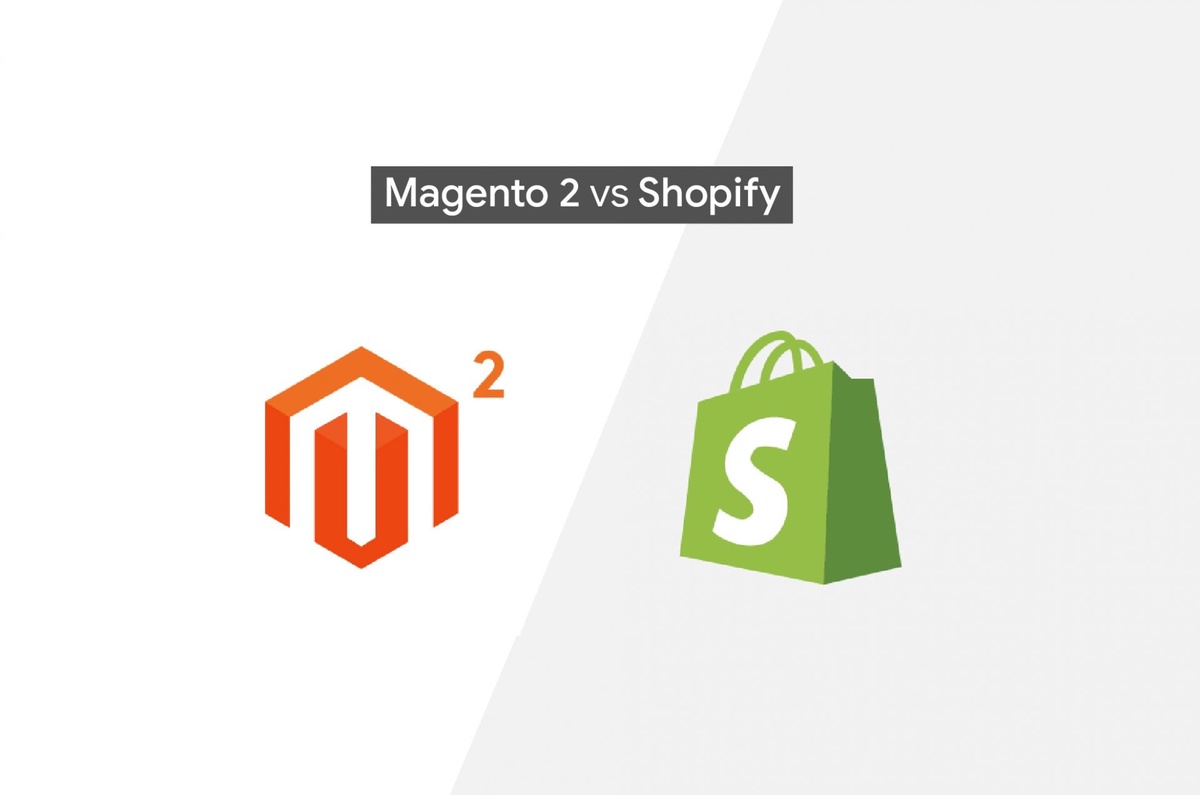When it comes to choosing an ecommerce platform, two popular options that often come up are Magento 2 and Shopify. Both platforms offer robust features and capabilities to help businesses build and manage their online stores effectively. In this article, we will compare Magento 2 and Shopify across various factors, including costs, ease of use, functionalities, speed and performance, and design and customization. By understanding the differences between these platforms, you can make an informed decision on which one is the right fit for your ecommerce needs.
Brief Introduction
Before diving into the comparison, let's briefly introduce Magento 2 and Shopify.
Magento 2
Magento 2 is an open-source ecommerce platform known for its scalability and flexibility. It offers advanced features and customization options, making it a popular choice for large and enterprise-level businesses. Magento 2 provides extensive control over the design, functionality, and backend operations of an online store.
Shopify
Shopify, on the other hand, is a hosted ecommerce platform that caters to businesses of all sizes. It provides a user-friendly interface and a range of built-in tools and features to simplify the process of setting up and managing an online store. Shopify handles hosting, security, and technical aspects, allowing merchants to focus on selling their products.
Now, let's compare Magento 2 and Shopify based on key factors.
Costs
When it comes to costs, Shopify follows a subscription-based model. It offers various pricing plans starting from basic to advanced levels, with additional costs for transaction fees and add-ons. Shopify provides a clear pricing structure, making it easier for businesses to budget their expenses.
Magento 2, being an open-source platform, offers a free community edition. However, implementing and managing Magento 2 requires technical expertise, which may incur additional costs for development, hosting, security, and maintenance. It is important to consider these factors when evaluating the overall costs of using Magento 2.
Ease of Use
Shopify is renowned for its user-friendly interface and intuitive setup process. With its drag-and-drop store builder and simplified backend management, Shopify makes it easy for beginners to create and manage an online store without extensive technical knowledge.
Magento 2, on the other hand, has a steeper learning curve. While it offers powerful customization options, it requires more technical expertise to set up and manage. Magento 2 is best suited for businesses with in-house development resources or those willing to invest in professional assistance.
Functionalities
Both Magento 2 and Shopify offer a wide range of functionalities to support ecommerce operations. However, Magento 2 excels in providing advanced features and scalability. It offers extensive customization options, including the ability to create complex product catalogs, manage multiple stores, and handle large amounts of data. Magento 2 also provides robust SEO capabilities and supports multiple languages and currencies, making it suitable for businesses with global reach.
Shopify, though not as feature-rich as Magento 2, offers a comprehensive set of built-in functionalities. It includes inventory management, order processing, payment gateways, and marketing tools. Shopify's app store allows businesses to further enhance their store's capabilities by integrating with third-party apps.
Speed & Performance
Website speed and performance are crucial for providing a seamless user experience and optimizing conversions. Shopify handles hosting and server maintenance, ensuring fast loading times and reliable performance. It utilizes a Content Delivery Network (CDN) to serve content efficiently to visitors from various locations.
Magento 2's performance heavily depends on the hosting infrastructure and optimization efforts. It offers the flexibility to choose hosting providers that meet specific performance requirements. With proper hosting and optimization, Magento 2 can deliver excellent speed and performance.
Design and Customization
When it comes to design and customization, both Magento 2 and Shopify offer options to create visually appealing online stores. Shopify provides a wide range of customizable themes and templates, allowing businesses to modify the design elements according to their brand identity. The drag-and-drop store builder makes it easy to rearrange sections and add product images and descriptions.
Magento 2, on the other hand, provides extensive control over design and customization. It allows businesses to create unique store layouts, implement custom functionalities, and tailor the user experience to specific requirements. Magento 2's flexibility is particularly beneficial for businesses with complex design needs and unique branding.
Conclusion
Choosing between Magento 2 and Shopify depends on your specific ecommerce requirements. If you prioritize user-friendly setup, ease of use, and a comprehensive set of built-in functionalities, Shopify may be the ideal choice. On the other hand, if you seek advanced customization options, scalability, and robust features, Magento 2 is worth considering. It is essential to evaluate factors such as costs, ease of use, functionalities, speed and performance, and design and customization to determine which platform aligns best with your business goals and resources. We help setup Shopify website and our Shopify store configuration and setup services will deliver the goods for your business. However, if you value customization options, control over the technical aspects, and the flexibility of WordPress, WooCommerce can be a great fit.


No comments yet